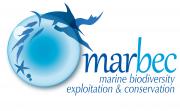General information
Objectives:
- Discuss best protocols for testing BEF/BES links in seagrass habitats across temperate and tropical settings.
- Address methodological issues such as confounding factors that have limited the power of previous experiments.
- Develop a European network of experts in BEF/BES research that will develop a comparative approach between temperate and tropical seagrass areas.
Background, challenges and aims:
The contribution of seagrass habitats to ecosystem functioning (e.g. biogeochemical fluxes) and ecosystem services (coastal protection) can vary as a function of species diversity. Furthermore, large variations in the estimated average monetary value of ecosystem services provided by seagrass beds seem to be dependent on specific context. An improved understanding of the processes under different contexts, especially across temperate and tropical habitats, would help predicting the consequences of global change to the link between marine biodiversity and ecosystem functioning (BEF) and biodiversity and ecosystem service provision (BES).
Format:
The workshop will be two and a half full days (09:00-17:00). An icebreaker dinner will be organized on Monday evening. Plenary sessions will identify research priorities from literature gaps; methodological issues in state-of-the-art approaches; and best practice to be addressed by the developing network.
The objective of the workshop is to discuss the best protocols and approaches for testing BEF/BES links in seagrass habitats across temperate and tropical settings. The short-term aim is to address methodological issues such as confounding factors that have limited the power of previous experiments. The long-term aim is to develop a European network of experts in BEF/BES research that will develop a comparative approach between temperate and tropical seagrass areas.
Content
The highlighted icons, represent the fields of education (in compliance with ISCED Classification) engaged during this course/programme.
Venue
Sète, France
Application
Click here to apply: https://docs.google.com/forms/d/1SC30lfouoGUn7Ct6ohCDaIrQE5xbc9LZpJpufwRCIRg/vie...
Cost:
<p>Following the online template, applicants must supply: full address/contact information, discipline(s), motivation for attending, foreseen contribution and expected benefits (up to one A4) and a short CV (2 pages) cut and pasted in to the template fields.</p> <p>Deadline for applications: 31st March 2016<br /> Decision and notification: 14th April 2016</p> <p><strong>Selection criteria:</strong></p> <ul> <li>Relevant expertise on the subject, previous experience in the field (seagrass ecosystem functioning, temperate/tropical experience, environmental economics of marine habitats).</li> <li>Number of workshop places prioritised for EuroMarine member</li> <li>12 participants can be financially supported. Additional participants, however, are welcome, e.g., those with own or other support. The maximum number of delegates is 16.</li> </ul> <p><strong>Funding:</strong><br /> The workshop is supported by the Euromarine network (www.euromarinenetwork.eu) and the Centre Universitaire de Formation et de Recherche de Mayotte. Travel (economy train/air) will be covered up to 300 €. Hotel accommodation (3 nights) and meals will be covered up to 180 €and a list of preferred hotels will be forwarded to participants.</p>
Application Procedure:
Online application form
Qualification
Qualification: Master of Science
Objectives:
- Discuss best protocols for testing BEF/BES links in seagrass habitats across temperate and tropical settings.
- Address methodological issues such as confounding factors that have limited the power of previous experiments.
- Develop a European network of experts in BEF/BES research that will develop a comparative approach between temperate and tropical seagrass areas.
Background, challenges and aims:
The contribution of seagrass habitats to ecosystem functioning (e.g. biogeochemical fluxes) and ecosystem services (coastal protection) can vary as a function of species diversity. Furthermore, large variations in the estimated average monetary value of ecosystem services provided by seagrass beds seem to be dependent on specific context. An improved understanding of the processes under different contexts, especially across temperate and tropical habitats, would help predicting the consequences of global change to the link between marine biodiversity and ecosystem functioning (BEF) and biodiversity and ecosystem service provision (BES).
Format:
The workshop will be two and a half full days (09:00-17:00). An icebreaker dinner will be organized on Monday evening. Plenary sessions will identify research priorities from literature gaps; methodological issues in state-of-the-art approaches; and best practice to be addressed by the developing network.
Online application form
The objective of the workshop is to discuss the best protocols and approaches for testing BEF/BES links in seagrass habitats across temperate and tropical settings. The short-term aim is to address methodological issues such as confounding factors that have limited the power of previous experiments. The long-term aim is to develop a European network of experts in BEF/BES research that will develop a comparative approach between temperate and tropical seagrass areas.

 EuroMarine
EuroMarine Marbec UMR
Marbec UMR

